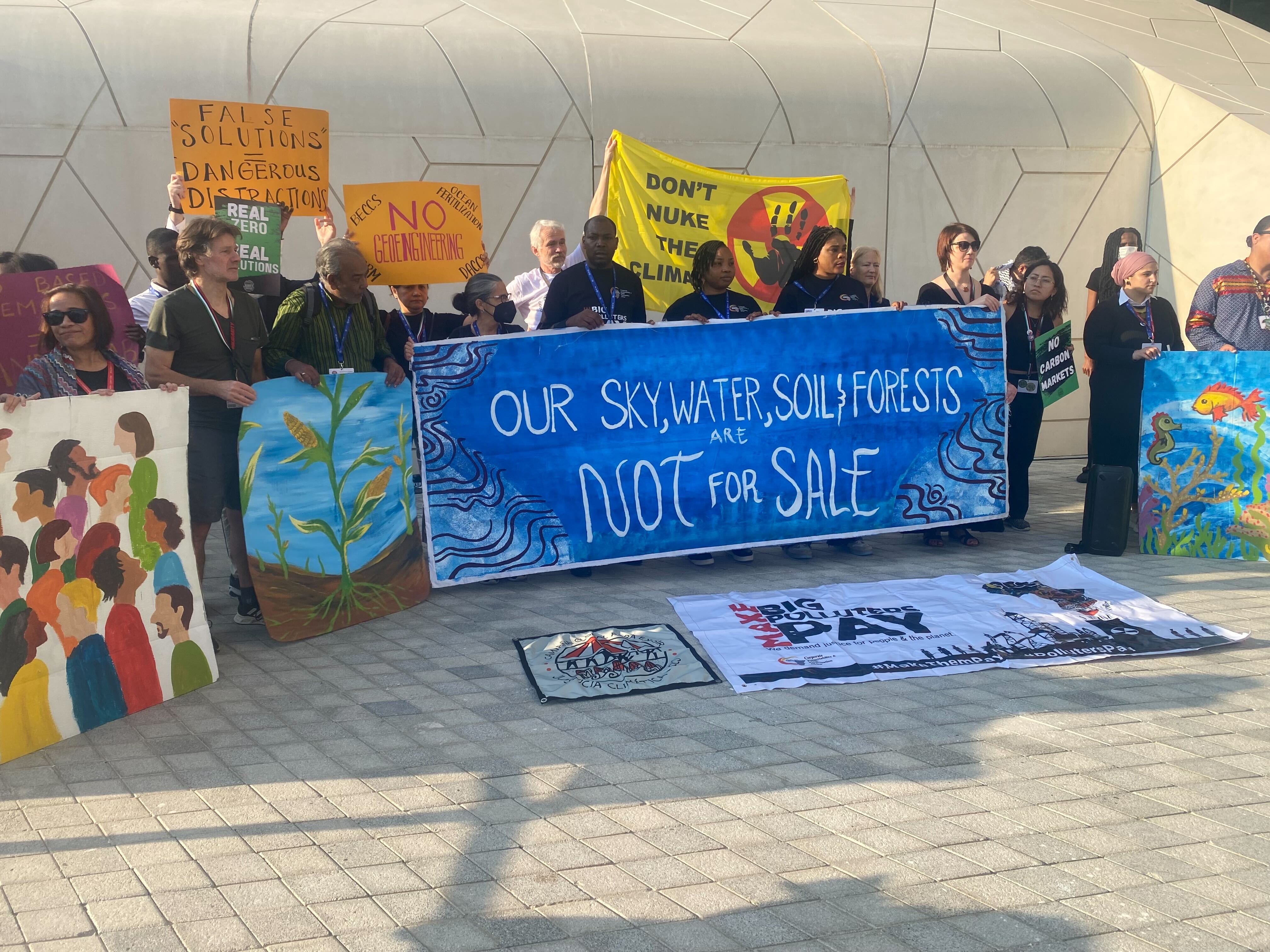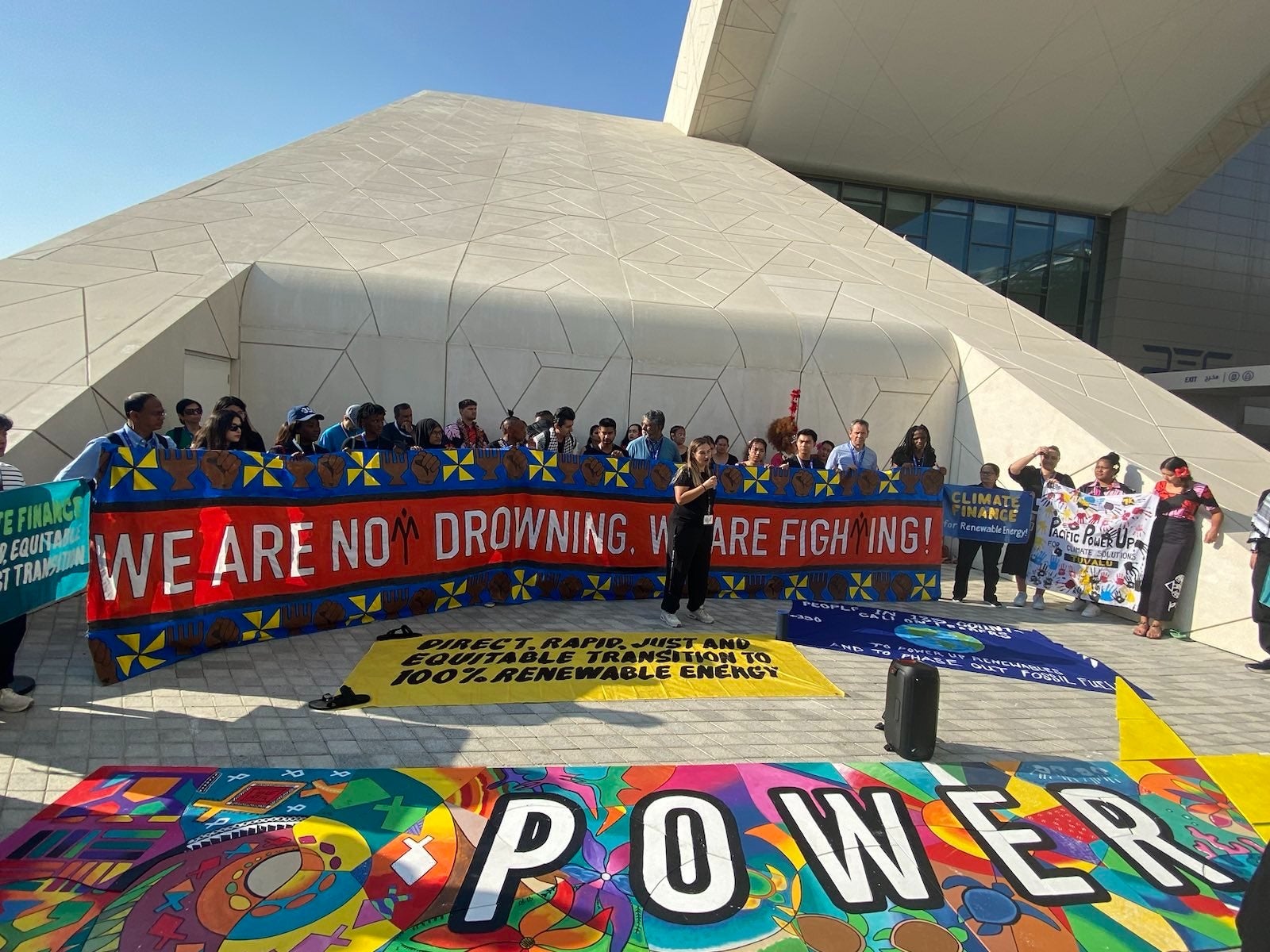Too much focus on ‘fairytale solutions’ at Cop28 climate talks, warn activists
Hundreds of lobbyists have descended on Dubai to push for untested new technologies to solve the climate crisis. Experts say they are just a distraction designed to let oil companies off the hook. Stuti Mishra reports from Cop28


Your support helps us to tell the story
From reproductive rights to climate change to Big Tech, The Independent is on the ground when the story is developing. Whether it's investigating the financials of Elon Musk's pro-Trump PAC or producing our latest documentary, 'The A Word', which shines a light on the American women fighting for reproductive rights, we know how important it is to parse out the facts from the messaging.
At such a critical moment in US history, we need reporters on the ground. Your donation allows us to keep sending journalists to speak to both sides of the story.
The Independent is trusted by Americans across the entire political spectrum. And unlike many other quality news outlets, we choose not to lock Americans out of our reporting and analysis with paywalls. We believe quality journalism should be available to everyone, paid for by those who can afford it.
Your support makes all the difference.After 10 days of climate negotiations at Cop28 in Dubai, delegates now have just 48 hours to reach a meaningful agreement on phasing out the use of fossil fuels worldwide.
But while experts say nothing short of that will do when it comes to tackling the climate crisis, a large amount of space at the summit is dedicated to the promotion of so-called “technical solutions” to global heating – the idea that new discoveries could allow us to keep emissions in check while continuing to exploit oil and gas for power.
Proposals for such solutions include the construction of a giant shield that could reflect some of the Sun’s light back away from Earth, or technology known as carbon capture and storage (CCS) that tries to catch and contain emissions at the point the fossil fuels are burned.
Experts here in Dubai are alarmed by the number of booths dedicated to unscientific geoengineering solutions like the giant sunshield, saying testing these ideas is already wreaking havoc on vulnerable countries.
And despite there being no evidence yet that CCS technology can work on a large scale, negotiators from oil-producing countries are already talking about using it to “abate” or lessen the impact of fossil fuel burning, suggesting the final Cop28 deal should only target “unabated” fossil fuels.
“I think Cop is increasingly becoming a space where many people come in trying to promote technological solutions to the crisis,” Sara Shaw, climate justice and energy programme coordinator at Friends of the Earth International, tells The Independent. “And there are real challenges with that.
“What we’re hearing from people on the ground is that the threat [related to geoengineering experiments] is in some cases as serious as a threat from the impact of extracting fossil fuels [itself],” she says.
Ms Shaw says geoengineering projects are experimenting on Indigenous territories in Alaska with proposals to dump huge quantities of silica glass microbeads on Arctic ice without consent or consultation. “These kind of ‘solutions’ are no solutions at all, if they result in grabbing or poisoning land,” she says.
“Not only that, [promoting technical solutions] allows operations to extract fossil fuels to continue, it’s a bit of a get out of jail free card for fossil fuel companies.”
Climate activists staged a protest against these technical proposals on Friday morning as they demanded a focus on “real solutions” instead, with chants of “our planet is not for sale” echoing out in front of the flag-lined boulevard where world leaders walked on the first day of the summit.
“No carbon markets, no geoengineering, no more offsetting,” was their demand.
CCS technology has received a huge amount of promotion in Dubai, particularly from fossil fuel industrialists, despite the fact that it remains unproven and highly expensive.
In a recent report, scientists from Oxford University said that the idea that all the problematic carbon dioxide emissions in the future can be safely and permanently buried in the ground with CCS technologies was deeply misplaced.

Experts say these technologies, often portrayed as ready for implementation, are far from being deployable at the required scale, and come with associated risks and uncertainties.
Lisa Fischer, programme lead at climate and energy advocacy group E3G, says there are 475 lobbyists just for CCS at the summit in Dubai. “[It] shows that the fossil fuel industry knows there is a real likelihood the world will be moving towards a deal for a global fossil fuel phaseout,” she says.
“The truth is, capturing emissions and burying them instead of avoiding them is expensive.
“Most countries know this – which is why we have seen many push for keeping the word “abatement” out of the text now and pointing to the limited role of carbon capture technologies in combatting climate change, especially this decade.”
Another solution being pushed at the summit is to use hydrogen as a power source. But Shaw says the “majority of hydrogen” produced globally is “fossil hydrogen” – where the power to create the hydrogen out of water comes from burning fossil fuels.
“On the surface, something like hydrogen looks quite attractive and looks quite appealing. But when you look at what’s actually required, virtually all of it is fossil hydrogen, virtually all of it.
“We try to deploy all these risky technologies. but I think it cost is very high, and we know what the answers are,” she says.
At the beginning of the summit, UN chief Antonio Guterres urged countries to agree to phase out fossil fuels. “Not reduce, not abate. Phase out, with a clear timeframe,” he told world leaders.
That is the only way the climate crisis can be tackled, experts say.
“I think for the fossil fuel phase out, what we we’re looking for is language that does exclude this term unabated,” says Shaw. “There’s no time left to mess around. We’re running out of time.”
Join our commenting forum
Join thought-provoking conversations, follow other Independent readers and see their replies
Comments